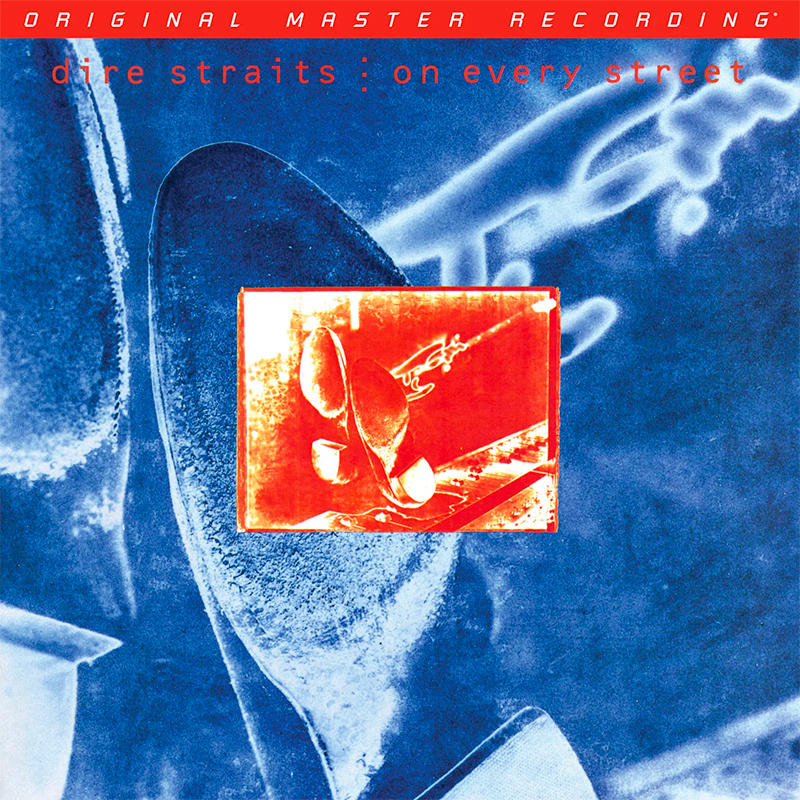Logowanie
OSTATNI taki wybór na świecie
Nancy Wilson, Peggy Lee, Bobby Darin, Julie London, Dinah Washington, Ella Fitzgerald, Lou Rawls
Diamond Voices of the Fifties - vol. 2
Tylko 1000 egzemplarzy!!!
DVORAK, BEETHOVEN, Boris Koutzen, Royal Classic Symphonica
Symfonie nr. 9 / Wellingtons Sieg Op.91
nowa seria: Nature and Music - nagranie w pełni analogowe
Petra Rosa, Eddie C.
Celebrating the art and spirit of music - vol. 3 - Pure
warm sophisticated voice...
Peggy Lee, Doris Day, Julie London, Dinah Shore, Dakota Station
Diamond Voices of the fifthies
Tylko 1000 egzemplarzy!!!
SAMPLER - STS DIGITAL, Buddy Tate, Milt Buckner, Walace Bishop
Jazz Masters - Legendary Jazz Recordings - v. 1
proszę pokazać mi drugą taką płytę na świecie!
Chesky! Niezmiennie perfekcyjny
Winylowy niezbędnik
ClearAudio
Double Matrix Professional - Sonic
najbardziej inteligentna i skuteczna pralka do płyt winylowych wszelkiego typu - całkowicie automatyczna
Bobo Stenson, Paul Motian, Anders Jormin
Goodbye
- Bobo Stenson - piano
- Paul Motian - drums
- Anders Jormin - double bass
Bobo Stenson’s trio projects have brought a host of eclectic programs to fruition in ECM’s choicest studios. Like label mate Tomasz Stanko, the Swedish pianist’s repertoire is a balancing act of adventure and return. As with the follow-up, Cantando, the present session draws from classical sources (Henry Purcell’s flavorsome “Music For A While”), protest songs (Vladimir Vyotsky’s “Song About Earth,” here something of a meta-statement), standards (Stephen Sondheim’s “Send In The Clowns” and the title tune by Gordon Jenkins), and Latin American music. All of this and more, including new material by Stenson and bassist Anders Jormin, in addition to some tried and true from drummer Paul Motian. Goodbye is the first recorded meeting of these three greats, who comb the pelt of the cosmos until it glistens. Whether by stick or by brush, Motian’s touch is meticulously impressionistic, reactive, and aware. His slipperiness is recognizable from the first quiver of the Sondheim classic. He adds so much patina to its well-polished surface, locking rough into smooth like the teeth of a zipper. Those unmistakable brushes continue to beguile in “Alfonsina,” which comes from the pen of Argentine composer Ariel Ramírez. We feel more than hear Motian as he blends into Stenson’s exquisite pianism with all the selflessness of a shadow. Only in the fourth track, “There Comes A Time” (Tony Williams), does he change over to sticks. Hooked on Jormin’s arm, he elicits a certain sweetness, fleeting as mist at sunrise. For his own tunes, “Jack Of Clubs” and “Sudan,” he overturns melodic warmth in spades and dips into resolution as might a painter into crimson. These share in the album’s concluding spate of briefer numbers, along with Stenson’s “Queer Street” and Jormin’s “Triple Play”—both tantalizing. The bassist enlivens the set with three further tracks, shifting from the stark poetry of “Seli” to the more flexible “Allegretto Rubato” at the flick of a wrist. It is “Rowan,” however, that regards the listener most enigmatically. It lives below the water’s surface, gazing at its own reflection until it can no longer swim. Stenson weeps here with the viscosity of a maple tree. Of that tree, the leaf that is Ornette Coleman’s “Race Face” swings freely, making the jive sound so easy when in truth we can hardly comprehend the paths taken to get here. Regardless of length, every bit of this moody and often-melancholic set feels complete. This is a jazz of evaporation; not the work of a trio but the feeling of another climate.
 Najnowszy (2016) format płyt CD, pozwalający w stopniu dotychczas niespotykanym przekazywać oryginalne, naturalne brzmienie zapisu studyjnego. Płyty UHQCD do odtworzenia we wszystkich typach czytników CD oraz DVD. Format opracowało znane japońskie laboratorium rekonstrukcji i masteringu dźwięku Memory-Tech Co., Ltd. |































